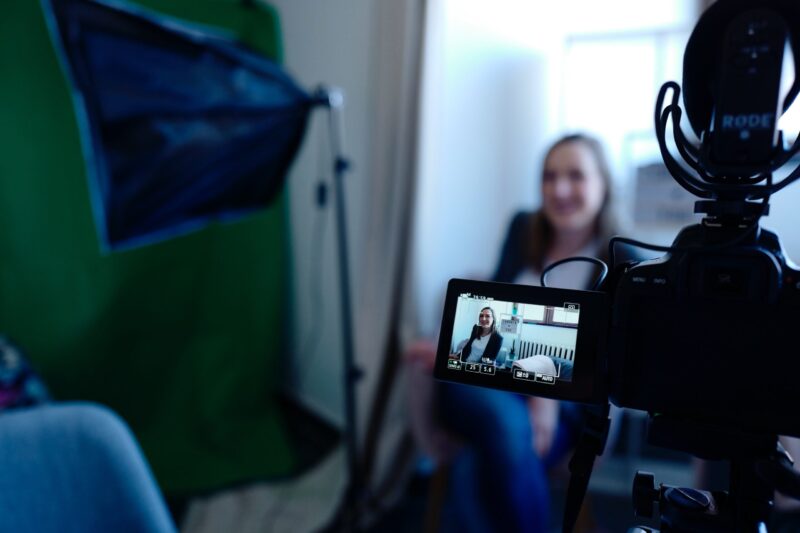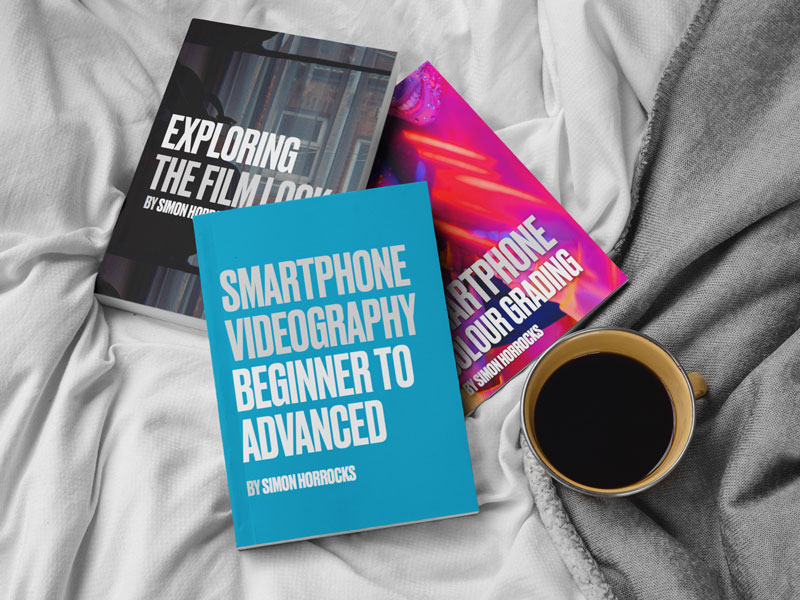7 Ways to Become a Professional Filmmaker
Becoming a professional filmmaker requires a combination of education, experience and skill. To succeed in this highly competitive field, aspiring filmmakers must be dedicated to their craft. They must be willing to work hard to develop their skills and gain experience.
In this article, I’ll provide an overview of seven key steps that can help you become a professional filmmaker. By following these steps, you can position yourself for success in the world of film and television. As well, you’ll learn to create compelling stories that captivate and inspire audiences.
1. Earn a degree in film
Earning a degree in film (or a related field from a reputable university) or film school can provide a solid foundation of knowledge and skills. In a film program, you can learn about the history of cinema, the principles of visual storytelling, as well as the technical aspects of production.
You’ll also get the opportunity to work on real-world projects and gain hands-on experience in a variety of roles. By completing a film degree program, you can develop a strong portfolio of work that showcases your abilities. All going well, this will set you apart from other aspiring filmmakers.
2. Gain experience
Another important step in becoming a professional filmmaker is gaining experience by working on student films, independent projects, or interning at a production company. These activities can provide valuable opportunities to learn from experienced professionals and develop your skills in a real-world setting.
By working on a variety of projects and taking on different roles, you’ll get a well-rounded understanding of the film production process. Seeing a series of projects through to the end will teach you what it takes to create a successful film.
Additionally, this will allow you to build a network of contacts and connections. These connection will be a huge help finding job opportunities and advancing your career in the film industry.
3. Build a portfolio of work
To become a professional filmmaker, it’s also important to develop a strong portfolio of work that showcases your abilities and demonstrates your ability to create compelling stories and visuals.
This can include short films, commercials, music videos or other projects that you’ve worked on. By compiling a collection of your best work, you can provide potential employers with an overview of your skills and experience. Make sure your portfolio highlights your unique style and vision. As well, use it to showcase the stories and themes that are most important to you as a filmmaker.
Presenting your work professionally will make a strong impression and, again, allow you to stand out.
4. Network with other professionals in the industry…
…such as directors, producers, and writers, to learn about job opportunities and build connections.
Networking with other professionals in the film industry can be a valuable way to learn about job opportunities and build connections. This can include attending film festivals, industry events and workshops. As well, try joining professional organizations or networks that are focused on film and television.
By building relationships with other filmmakers, you can learn from their experiences and gain insights into the industry. You can also learn about job openings and opportunities for collaboration, and establish yourself as a professional filmmaker with a strong network of contacts.
5. Develop a strong understanding of the technical aspects of filmmaking…
…such as lighting, camera operation, and editing.
In order to become a professional filmmaker, it’s important to have a strong understanding of the technical aspects of filmmaking. I’m talking about such as lighting, camera operation and editing. This can involve taking courses or workshops to learn about the latest techniques and technologies. Then you can practice these skills on your own projects.
By mastering the technical aspects of filmmaking, you can create high-quality visuals that bring your stories to life. You’ll also work more efficiently and effectively on set. As well, you’ll be able to troubleshoot problems and make quick decisions that can impact the final outcome of any films you work on.
6. Be willing to work hard and take on a variety of roles
Early on try to get as much experience as you can. Don’t be afraid to accept challenging tasks and positions.
This can include working as a grip, gaffer, or assistant director. In this way you will gain experience in different areas of the production process. You will also learn from experienced professionals and gain a well-rounded understanding of what it takes to make a film. It’s important to develop a strong work ethic.
As well, a willingness to take on challenges can be valuable in the competitive world of filmmaking.
7. Be persistent and dedicated to your craft…
…and continue to improve your skills and seek out new opportunities to tell stories through film.
You really need to continue learning and improving your skills, even when faced with challenges and setbacks. You must stay committed to your goals and willing to work hard to achieve them. This can involve taking classes or workshops to learn new techniques and technologies, seeking out new opportunities to tell stories through film, and being willing to put in the time and effort to create high-quality work.
Being persistent and dedicated to your craft also means being open to feedback and willing to learn from others. Try seeking out mentors or industry professionals who can provide guidance and advice. And be willing to take constructive criticism in stride.
make sure to stay up-to-date with industry trends and developments. As well, be open to new ideas and approaches to storytelling.
With 12+ hour days and 3 weeks or longer shoots, being a filmmaker can take a lot of stamina. But by being persistent and dedicated to your craft, you can continue to grow and develop as a filmmaker. By staying focused on to your goals, you can continue to grow and develop as a filmmaker. This will eventually enable you to position yourself for success in the competitive world of film and television.
Videography – Beginner to Advanced
If you want to know more about filmmaking, my book Smartphone Videography – Beginners to Advanced is now available to download for members on Patreon. The book is 170 pages long and covers essential smartphone filmmaking topics:
Things like how to get the perfect exposure, when to use manual control, which codecs to use, HDR, how to use frame rates, lenses, shot types, stabilisation and much more. There’s also my Exploring the Film Look Guide as well as Smartphone Colour Grading.
Members can also access my regular filmmaking podcast, as well all 5 episodes of our smartphone-shot Silent Eye series, with accompanying screenplays and making of podcasts. There’s other materials too and I will be adding more in the future.
If you want to join me there follow this link.
Simon Horrocks
Simon Horrocks is a screenwriter & filmmaker. His debut feature THIRD CONTACT was shot on a consumer camcorder and premiered at the BFI IMAX in 2013. His shot-on-smartphones sci-fi series SILENT EYE featured on Amazon Prime. He now runs a popular Patreon page which offers online courses for beginners, customised tips and more: www.patreon.com/SilentEye




